35 Webinars on the Hamas-Israel WarCIE+
Watch our collection of weekly Wednesday webinars with expert analysis and insights into the war and related topics, and register for the next webinar.

Watch our collection of weekly Wednesday webinars with expert analysis and insights into the war and related topics, and register for the next webinar.

With more than 1,200 murdered and 250 kidnapped by Hamas terrorists on October 7, the Middle East and other parts of the world continue to seethe with emotion and limitless uncertainties. Joining us for CIE’s…
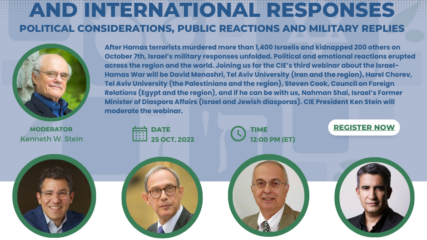
October 25, 2023 After Hamas terrorists murdered more than 1,200 Israelis and others and kidnapped at least 240 on Oct. 7, 2023, Israel’s military responses unfolded. Political and emotional reactions erupted across the region and…

The murderous attacks perpetrated by Hamas terrorists against Israelis reverberated across Israel, the region and the world. As Israel buried tens of hundreds of its dead, the government formed an emergency war cabinet to shape responses as thousands were mobilized for reserve duty. On Israel’s borders and across the region, tensions rose. The U.S. responded with unequivocal presidential, congressional and military support for Israel’s national security and President Biden’s visit to Israel on October 18. Joining CIE to provide insight into Hamas’ ideological motivations, its connections to Iran and the rise of Islamic antisemitism were Tel Aviv University Professor Meir Litvak. Discussing Middle Eastern, North African and international responses was Dr. Sarah Feuer, a lecturer at Reichman University and a research fellow at the Gazit Institute in Tel Aviv. Addressing the implications and context of Biden’s visit was Dr. Amnon Cavari, who teaches at Reichman University and this year is an Israel Institute visiting professor of political science at the University of Michigan. During this 39-minute webinar, they talked about Hamas’ genocidal ideology and its reasons for striking now, the likelihood of weakening regional and international support for Israel as the war continues, and the war’s best possible outcomes for Israel. Moderating was Dr. Ken Stein, the Center for Israel Education’s president and an Emory University professor emeritus of Middle Eastern history and political science.
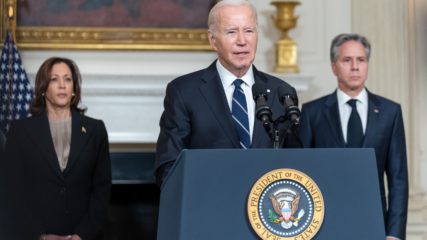
After the horrific Hamas attack on Israel, President Joe Biden unequivocally categorizes Hamas’ brutality as “pure, unadulterated evil” and reiterates that the U.S. will “stand with Israel.”
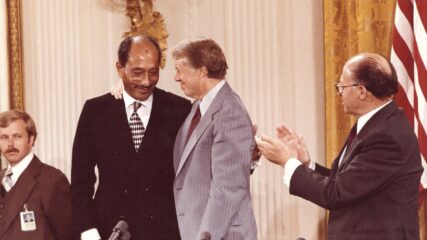
The Camp David accords culminated after thirteen days of intense negotiations between Israeli, Egyptian, and American delegations. Egyptian and Israeli leaders met with President Carter where after difficult negotiations they signed two accords, one an outline for an Egyptian-Israeli Treaty and one for Palestinian self-rule. The negotiations continued for another six months until the Egyptian-Treaty was signed in March 1979, after considerable bad feeling was tossed back and forth between Israeli and American negotiators.

2013 Kenneth W. Stein, “Evolving a Diplomatic Legacy From the October War: The US, Egyptian, and Israeli Triangle,” in Asaf Siniver (ed.), The October 1973 War: Politics, Diplomacy, and Legacy, London: Hurst and Co., 2013,…

Siegel resigned over two matters: the administration’s policy of selling advanced fighter aircraft to Saudi Arabia and Egypt, which he believed a threat to Israel’s national security, and his sharp disagreement with the Carter White House for not allowing alternative views on policy matters to find their way to the President’s desk. Siegel’s detailed interview about the administration’s anti-Israeli viewpoints are explained here.

Join CIE’s founding president, Ken Stein, in a conversation at 5 p.m. ET on Nov. 29 with two experts in the field of U.S.-Israel relations, Aaron David Miller and Raphael Danziger, as part of CIE’s Israel@75: A Yearlong Exploration program.

Balfour, an English politician and diplomat who served as the British prime minister from 1902 to 1905, was the foreign secretary in November 1917 when he sent a letter to Lord Rothschild that became known…
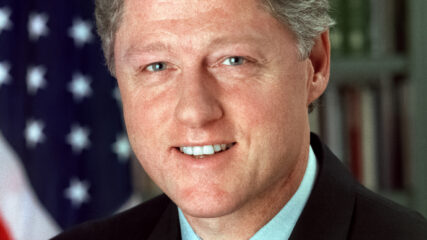
As president, Clinton hosted the signing of the 1993 Oslo Accords, helped Jordan and Israel achieve a peace treaty in 1994, and mediated the 1995 Oslo II agreement that recognized the Palestinian Authority. He brokered…
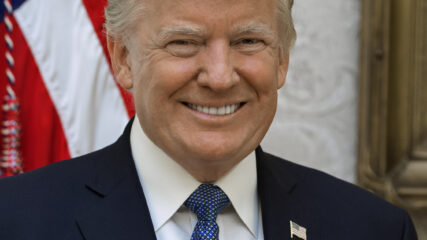
The 45th and 47th U.S. president, Trump took steps in both terms to strengthen ties with Israel. He withdrew from the 2015 Iran nuclear deal. He fulfilled a deferred 1995 law and moved the U.S….

New Jersey native Brody was a first-round NBA draft pick out of the University of Illinois in 1965, but after visiting Israel for the first time that summer for the Maccabiah Games, he decided to…

A British brigadier general, Kisch chaired the predecessor to the Jewish Agency, the Palestine Zionist Executive, from 1918 to 1921. Kisch was prolific in Jewish life in Mandate Palestine. He helped found the Palestine Philharmonic…
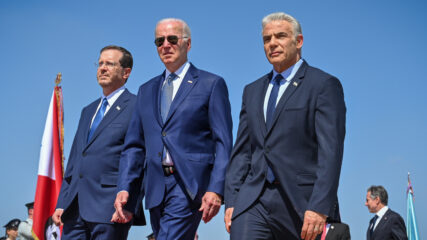
On President Joe Biden’s trip to Israel, he and Prime Minister Yair Lapid affirmed the long-term U.S.-Israel strategic relationship.
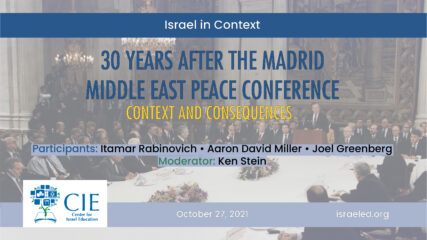
This 54-minute webinar, recorded Oct. 27, 2021, is part of the Center for Israel Education’s “Israel in Context” series and is incorporated into an extensive set of documents, study guides, videos and other resources CIE has compiled at https://israeled.org/madrid-conference/ to mark the 30th anniversary of the Madrid Middle East Peace Conference, when Israel first sat at the same table with all of its immediate Arab neighbors to talk peace.
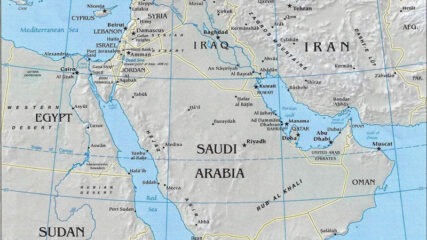
Historical Context Explore the historical context through the events and the documents leading up to the 1991 Madrid Middle East Peace Conference: 1949: Israel ends the War of Independence without secure borders or Arab acceptance….
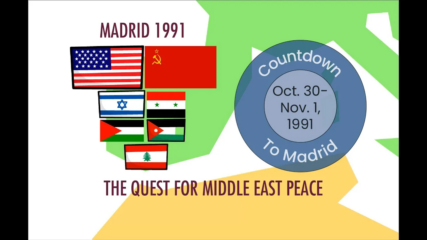
October 18, 2021 Examine the events that led the United States and the Soviet Union to convene high-level delegations from Israel and all of its immediate Arab neighbors, as well as other regional parties, in…

A week after Antony Blinken’s confirmation as Secretary of State, the Acting US Ambassador to the UN outlined with considerable detail the administration’s objective to an agreed, not imposed two-state resolution to the Palestinian-Israeli Conflict.

President Biden comes to the presidency with more Washington experience than any other former president. While he has designated a foreign policy team with significant experience, his immediate priorities will be domestic. With a razor thin senate majority why would he expend political capital in trying to find solutions to Middle Eastern issues that are highly complex, seemingly intractable, and culturally embedded? The exception might be seeking to curtail Iran’s nuclear and regional aggressiveness.

UAE and Bahraini ambassadors to the U.S. provide incisively sharp assessments about why their peace accords unfolded with Israel in September 2020: to halt West Bank annexation, strengthen ties with the United States, enhance national security, and stimulate, if possible, Palestinian-Israeli negotiations.

CIE Founding President, Professor Ken Stein and Visiting Israeli Scholar, Dr. Nachman Shai, who served in the Israeli Parliament for 10 years, explain the context and implications of the Abraham Accords for Israel and the Middle East.
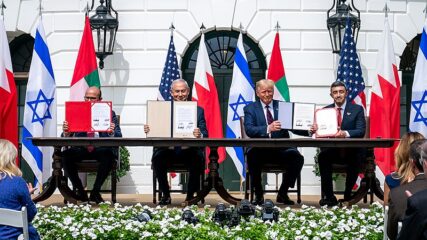
Quietly pursued in the past, long-standing strategic ties between Israel and Gulf states have become public. Building on the historic Joint Agreement signed between Israel and the UAE in August 2020, the Abraham Accords serve as a framework for normalizing diplomatic relations between Israel, the UAE and Bahrain.

President Trump announces the diplomatic breakthrough under which Israel halts its plans to annex parts of the West Bank and the United Arab Emirates agrees to full diplomatic relations with Israel without any Israeli land concesssions.